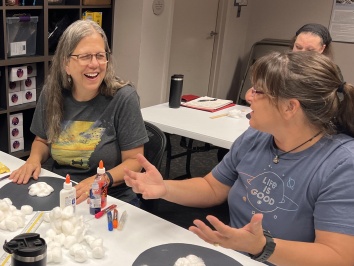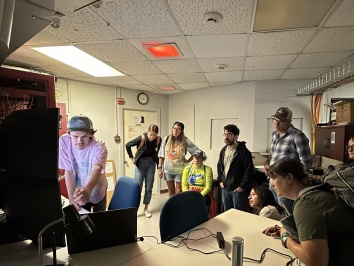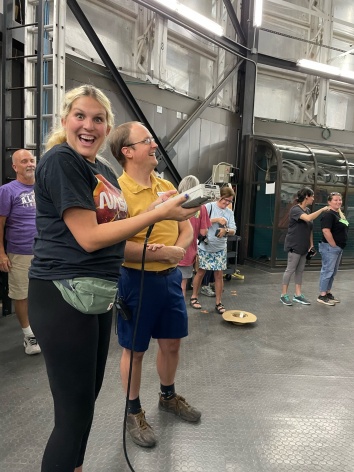
Teachers participating in hands-on classroom activities during a summer 2023 teacher workshop.
15 November 2023
For over 20 years, McDonald Observatory has offered a spectacular setting and enriching content for teacher professional development. In summer 2023, we hosted five onsite workshops, complete with telescope tours, discussions with resident researchers, and nighttime observations.
In total, 72 teachers joined us for these workshops. Most traveled from cities across Texas, but we also had participants from Oklahoma, New Mexico, California, Florida, Minnesota, New Jersey, Ohio, DC, Maryland, and Kentucky.
Workshops provided a collective 1,440 hours of Continuing Professional Education credits. We estimate 3,600 students could benefit from materials covered in the trainings this school year.
Participants experienced inquiry-based activities aligned with science and mathematics teaching standards, practiced astronomy skills under the Observatory’s famously dark skies, and worked with nationally recognized astronomers.
Each workshop took place over a period of four days and included both day and night instructional sessions, daytime tours, and evening observing (weather permitting) that lasted until late hours.
There was a lot of learning packed into long hours. Even so, some teachers choose to get up as early as 5:00 a.m. to look at the Milky Way on their own.
Teachers were provided onsite housing, meals, and workshop materials. Except for transportation, all expenses were covered by grant and endowment funding, plus a modest participant fee.
In the coming year, McDonald Observatory will hold more teacher workshops. To read full workshop descriptions and access the application form, please visit mcdonaldobservatory.org/teachers/profdev.
There is a separate workshop application form for the winter workshop and the summer workshops.
Winter Workshop
Application deadline: December 12
Summer Workshops
Application deadline: February 12
All workshops include a tour of McDonald Observatory and opportunities to learn how astronomers use the research telescopes to explore the Universe and make ground-breaking discoveries.

Teachers participating in hands-on classroom activities during a summer 2023 teacher workshop.

Teachers get a tour of the McDonald Observatory research telescopes, which includes insights on how astronomers do their work.

Workshop participant spins the Hobby-Eberly Telescope during a backstage tour.